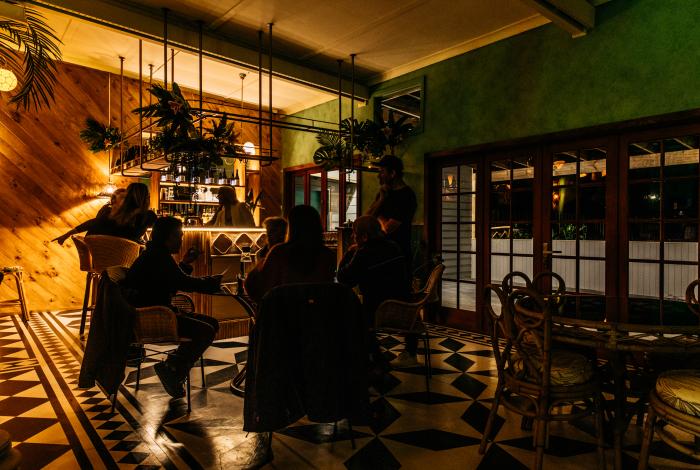Council has prepared a Draft Central Coast Night-Time Economy Discussion Paper which aims to identify interventions to create better places for businesses, the local community and visitors after dark in the Central Coast.
The discussion paper was developed through extensive stakeholder engagement including internal and industry workshops, business surveys as well as interviews with neighbouring Councils. It also aligns with actions from Council’s Economic Development Strategy 2020-2040, the Central Coast Destination Management Plan 2022-2026 and the Safer Cities: Her Way program.
The Central Coast currently has a limited and dispersed night-time economy and the discussion paper details ways for us to support local businesses to increase after dark operations to deliver more opportunities for employment, tourism and the local economy.
Have your say
We’re now inviting locals and visitors as well as business and tourism industry leaders to provide feedback on the Central Coast Night-Time Economy Discussion Paper.
Between 30 November 2023 and 12 February 2024, we sought community feedback and encouraged written submissions.
Basic Documents
Segmented Documents
Timeline
Who's listening
Why is a night-time economy important?
The range of activities and experiences within the night-time economy are important in terms of the expression of local identity, as well as investment, employment and consumer spending.
The character of the night-time economy and its attraction to different types of people differs across regional towns and cities depending on such variables as population
catchment area, environment, safety, and infrastructure.
Establishing a successful and well-functioning night-time economy on the Central Coast is an important economic development objective for Council. Enhancing and activating the night-time economy will create better places for business, the local community, and visitors after dark on the Central Coast.
From an economic development perspective, the night-time economy provides a variety of jobs, particularly for younger people. An appealing night-time economy is equally an important factor in attracting a talented workforce, addressing the question - what is there to do at night?
What is the current state of Central Coast Night-Time Economy?
The Central Coast currently has a limited and dispersed night-time economy. It is a large regional location with no one significant CBD. It has five identified principal town centres (Gosford, Terrigal, The Entrance, Wyong, and Woy Woy) and a further seven major town centres, with 145 suburbs spread across the Local government Area (LGA). As such, the night-time economy across the Central Coast operates within spatial and geographical constraints.
However, there are identified opportunities to create a well-functioning night-time economy that can deliver business growth, employment, and cultural and community vitality in the years ahead.
A well-functioning night-time economy involves partnership, support and collaboration between government, private enterprise, and community interest groups. The successful facilitation of vibrant night-time economies and entertainment precincts can develop cultural and community vitality and improve local economies (through tourism and employment growth) while also offering opportunities for the production and consumption of art and culture.
What is the purpose of the discussion paper?
This Draft Discussion Paper details ways for Council to plan better places for businesses, the local community and visitors after dark. This document essentially outlines what Council can do to support the enhancement and activation of the night-time economy.
Community and industry representatives’ feedback on this discussion paper will help us plan the next steps and chart a way forward for supporting the growth of the Central Coast’s night-time economy.
How does it link into existing strategies and plans?
The Central Coast Council’s Economic Development Strategy 2020-2040 identified for Council the opportunity to develop the Night-Time economy. It has a priority action to prepare a Night-Time economy discussion paper, exploring options for enhancing the diversity and size of our night-time economy.
The Central Coast Destination Management Plan 2022-2025 also has an action to carry out a Night-Time activation and enhancement strategy which identifies intervention concepts for Night-Time economy precincts, and understanding barriers to Night-Time activity (including zoning, compliance).
The Discussion Paper addresses these two strategic actions and details ways for Council to plan better places for businesses, the local community and visitors after dark.
The Safer Cities: Her Way program also holds a number of actions related to enhancing perceptions of safety which can improve the night-time economy on the Coast.
The following two related policies will also go out for public exhibition in early 2024:
- Draft Central Coast Local Approvals Policy
- Draft Central Coast Outdoor Trading Specification
What previous engagement has been conducted?
Consultants Urban Enterprise conducted key stakeholder engagement activities with local businesses from May to November 2023 in key areas.
The Discussion Paper is informed by independent research and analysis as well as consultation with industry representatives, businesses, Council staff, and local governments. It was developed incorporating feedback from:
- One council workshop
- Four business and industry workshops
- One business survey
- Two interviews with other local governments
What are the next steps?
Community and industry representatives’ feedback on this discussion paper will help us plan the next steps and chart a way forward for supporting the growth of the Central Coast’s night-time economy.
At the close of the exhibition, Council staff will review all feedback to finalise the document for adoption in 2024.
The aim is to establish a working group with both internal and external stakeholders to assist in identifying night-time economy projects and assessing programs, budgets and available funding.
Council will also be advocating for and looking to secure grant funding to help deliver projects.

